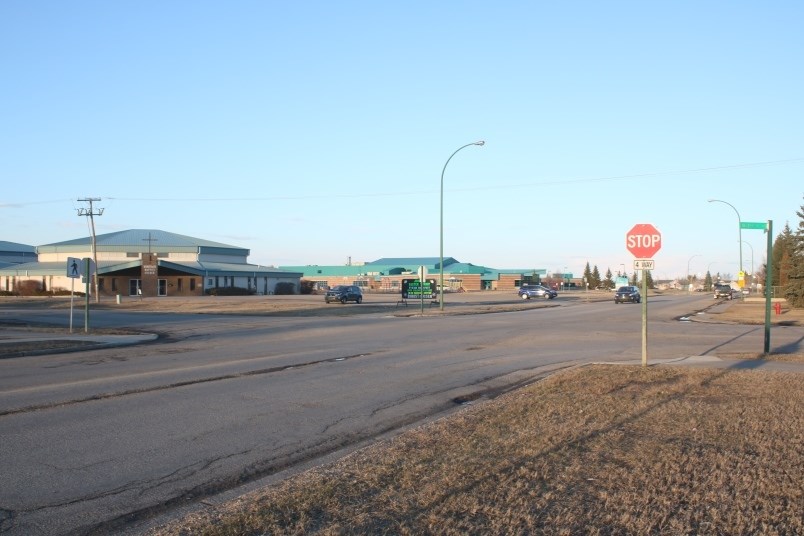Improvements to Mayhew Avenue and Darlington Street, including the previously contentious roundabout intersection were finally fully approved by Yorkton Council at its regular meeting Monday.
The city received tenders from two companies, one offering a price for concrete construction, and both including as asphalt topping option.
In the end Council accepted the tender from Fedorowich Construction Ltd. for $2,306,523.50 plus applicable taxes.
In addition Council embarked on a new initiative where the City will allocate $1,188,497 into Roadway Reserves for future maintenance and required asphalt overlays.
The set aside of maintenance dollars is something Trent Mandzuk – Director of Public Works, with the City said should become commonplace.
“As municipalities across the country are facing increasing financial pressures, they are seeking ways to more efficiently manage budgets and increase roadway performance,” he told Council.
“Until recently, bid selection has been driven primarily by the initial cost of projects. This method of bid selection is short-sighted because it fails to provide a thorough understanding of the long-term costs of our assets. Life Cycle Cost Analysis (LCCA) is becoming one of the most important aspects of asset management. This is especially true when we consider Yorkton’s average roadway lifecycle is approaching a 150-year service life based on current funding levels. Our Citizens of Yorkton need to understand some roadways within our city will be 150 years old before they are rehabilitated. Only by looking farther into the future can our City begin to fully capitalize on potential savings through understanding what an asset truly costs over the time we own and operate it.”
Mandzuk said a different approach was needed.
“The use of alternate roadway designs (asphalt pavement versus concrete pavement) and lifecycle cost analysis provides a better way to understand how much our roadways cost long-term,” he said.
“A variety of engineering factors such as roadway materials and structural performance must be weighed against initial and life-cycle costs as well as sustainable benefits.
“This evaluation includes analysis of pavement life-cycle strategies including initial and future costs for construction and maintenance, supplemental costs for engineering, contract administration, traffic control and societal costs such as user delay and environmental impact.”
As for the difference between concrete and asphalt, Mandzuk noted “Each pavement design requires its own maintenance and rehabilitation plan. When selecting a pavement alternative, it is important to evaluate the expected pavement performance and costs for the entire life-cycle.”
“...As previously stated, funding to employ all the recommended maintenance practices for our roadway network simply does not exist. To manage this sector of assets responsibly, sufficient funds need to be set aside to ensure the City has adequate funding to cover the total cost of its roadways over their design lifecycle.”
Mandzuk said preparing for maintenance simply made sense.
“You can’t own something and not look after it,” he said, adding one does not buy a new car and then “never do an oil change, or never wash it. It makes no sense.
Council would approve the tender and maintenance reserve, but Councillors Mitch Hippsley and Darcy Zaharia were opposed.



